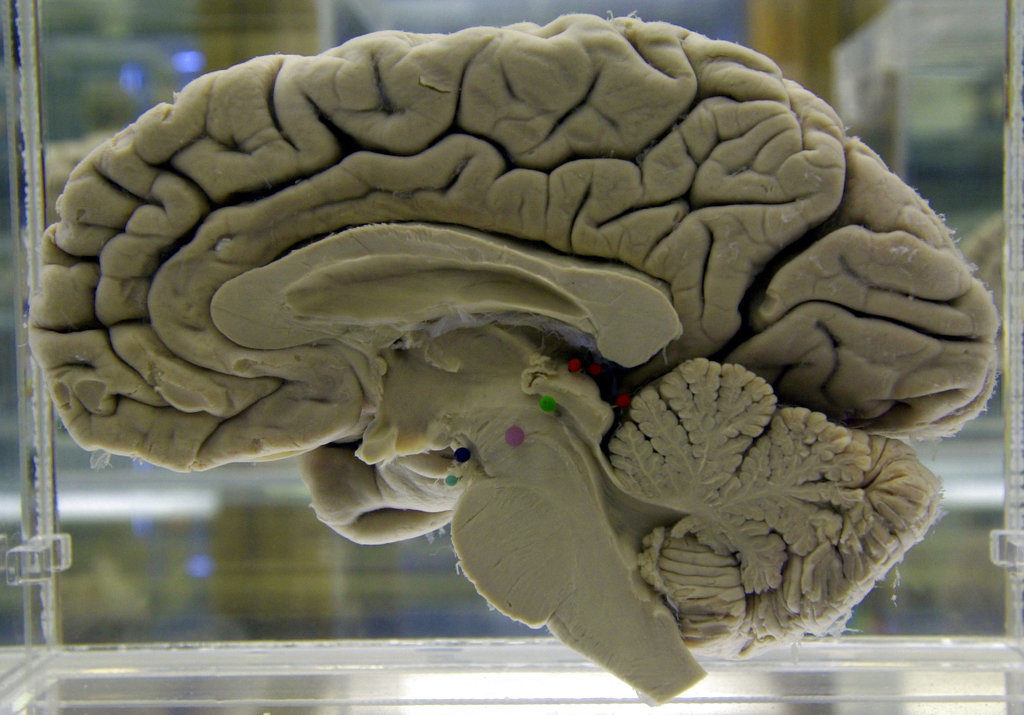Number, severity of brain injuries raises dementia risk

FILE – This Tuesday, Oct. 7, 2003 file photo shows a section of a preserved human brain on display at the Museum of Neuroanatomy at the University at Buffalo, in Buffalo, N.Y. A study released on Tuesday, April 10, 2018 offers more evidence of a link between traumatic brain injuries and dementia later in life, with repeated injuries and severe ones posing the greatest danger. (AP Photo/David Duprey)
SEATTLE — A large study offers more evidence of a link between traumatic brain injuries and dementia later in life, with repeated injuries and severe ones posing the greatest danger.
Researchers analyzed 36 years of health records of 2.8 million people in Denmark, where a national health system makes it possible to explore connections in a far-reaching way.
Overall, the risk was small. About 95 percent of people who suffered a brain injury never developed dementia.
But a single severe brain injury increased the risk of later dementia by 35 percent compared with a person who never had brain trauma. A mild brain injury increased the risk by 17 percent. Each additional brain injury added to the danger.
Overall, the risk of dementia was 24 percent higher for people with a traumatic brain injury compared with people without one. The study was published Tuesday in the journal Lancet Psychiatry. A study of 3.3 million people in Sweden earlier this year showed similar results.
Despite the size of the studies, they won’t settle scientific questions — or social debate — about brain injuries from sports, war, car crashes or domestic violence.
Scientists know that a blow to the head can damage brain cells, but they don’t know exactly how that might lead to later cognitive problems, said lead researcher Dr. Jesse Fann of University of Washington School of Medicine in Seattle.
This kind of study can’t prove a cause-and-effect relationship, but researchers tried to eliminate the possible effect of age, gender, marital status and health, including depression. And they looked at other types of trauma, such as broken bones, and found that brain injuries were more closely tied to dementia.
In a commentary in the journal, Dr. Carol Brayne of University of Cambridge’s medical school in England wrote that improvements in care mean more people are surviving brain injuries, making it crucial to understand more about their long-term effects. /muf